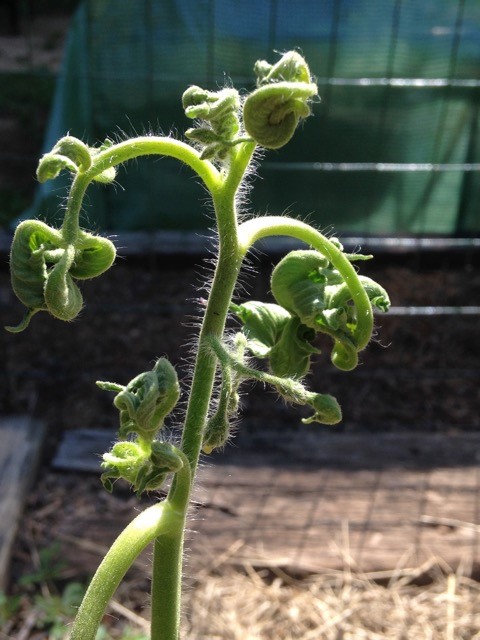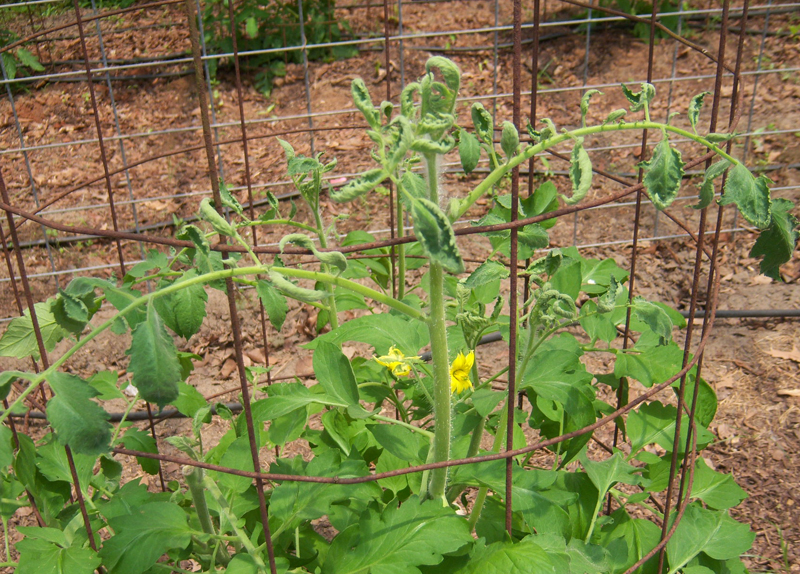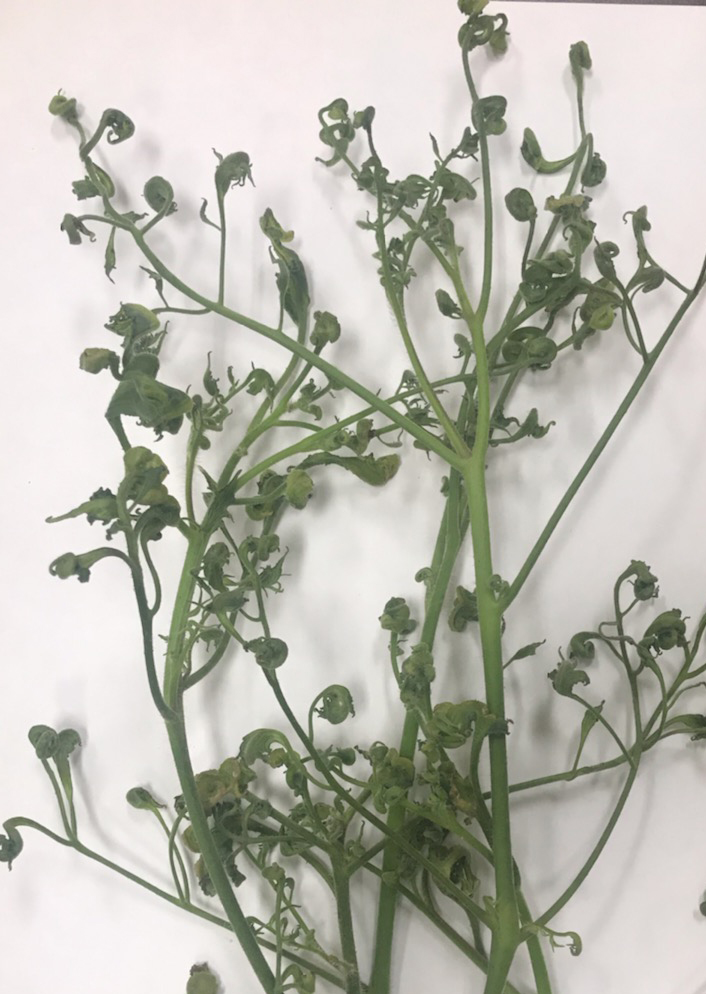Have you ever experienced strangely deformed new growth on your tomatoes? Every year I receive several reports of virus-like damage to tomatoes due to carryover of herbicides in hay and the manure of hay-eating animals. The herbicides in question are in the pyridine carboxylic acid class of broad-leaf weed herbicides and are found in products such as Grazon. This class of herbicide is used on most hay fields and some pastures. The problem is the very long activity time of pyridine carboxylic acid herbicides (3+ years) when compared to phenoxy herbicides such as 2,4-D which break down in a few months. The hay from treated pastures is eaten by the animal and the herbicide residues are passed into the manure. The herbicide retains some activity in the manure or hay, even after the composting process. Tomatoes, and certain other plants, are super sensitive to broad-leaf weed herbicides. When the compost is added to the soil or the hay is used as mulch, the herbicide is leached out into the soil and absorbed by the plant roots. Once in the plant, the herbicide interferes with plant developmental hormones resulting in all the new foliage becoming severely distorted. Make note of the fist-like curls on the new foliage caused by this class of herbicides.

The problem has become more common as growers are turning to sustainable growing practices such as incorporating organic matter into soil. Unfortunately, one should assume this herbicide is in all hay and the manure of hay-eating animals unless the source of the hay can be positively traced with a guarantee that this type of herbicide was not used. Rarely is this possible. For the commercial organic grower, incorporating contaminated manure is problematic from both a crop production and a certification standpoint. Many growers have turned to commercially produced compost that meets organic certification standards and is guaranteed not to contain contaminated animal manures.

Tomatoes are affected by very minute quantities of herbicide which may be below the detection limit of any lab test. Affected tomatoes usually do not recover productivity. While these herbicides would destroy many crops if applied directly, most other vegetables are not as sensitive to the very low levels usually found in compost. A simple bio assay for the presence of the herbicides is to grow a seedling tomato in the compost for several weeks and watch for symptoms. While the herbicide in compost remains active for several years, once in the soil the herbicide appears to be neutralized by the next growing season.
